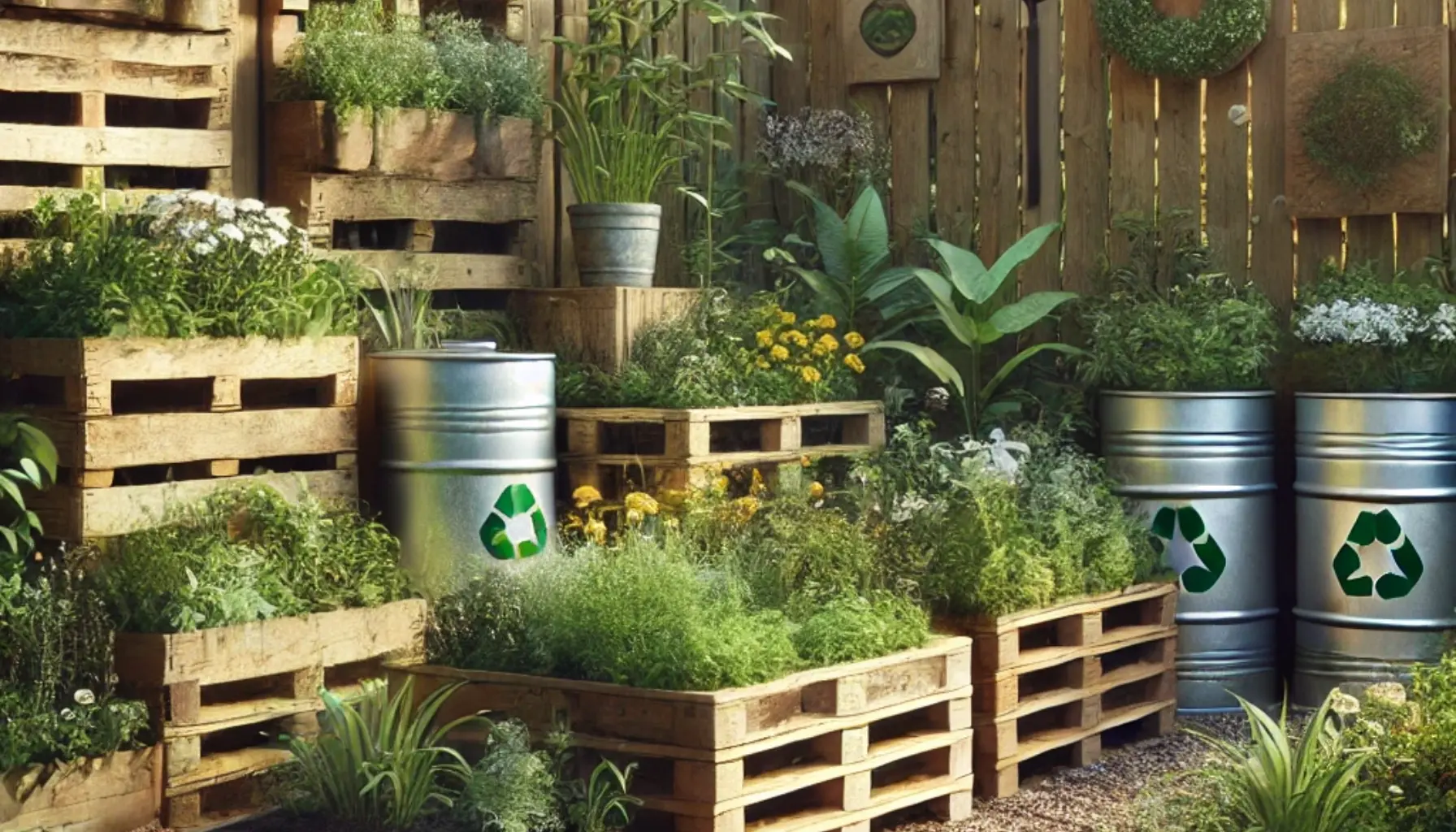Adopting eco-friendly and sustainable practices is an impactful way to care for our planet. By making small changes, such as sustainable gardening, you can reduce your environmental footprint while creating a positive ripple effect. Gardening connects us to nature, and when done mindfully, it can support a healthier planet.
This article will guide you through simple yet effective gardening practices and how they align with broader ecological living principles. With small steps, you can make a big difference!
Why Adopt Eco-Friendly and Sustainable Practices?
The need for eco-friendly practices has never been greater. Climate change, pollution, and resource depletion are global challenges that demand immediate action. By adopting sustainable habits, you contribute to conserving natural resources, protecting biodiversity, and reducing waste.
Sustainable gardening is a simple yet powerful way to take action. By using resources wisely, minimizing waste, and working with nature instead of against it, you can create a thriving green space that benefits both you and the environment.
These practices don’t require significant sacrifices; they start with small, achievable changes that add up over time.
Sustainable Gardening: Small Changes, Big Impact
Sustainable gardening focuses on nurturing plants and the environment while conserving resources. It minimizes harm to the ecosystem and promotes long-term environmental health.
Here are small but impactful changes you can make in your garden:
- Conserve Water: Use rainwater collection systems or recycled water to irrigate plants. Water early in the morning or late in the evening to reduce evaporation.
- Use Native Plants: Native plants are adapted to your climate, requiring less water, fertilizers, and maintenance. They also attract local wildlife like pollinators.
- Compost Organic Waste: Kitchen scraps and yard clippings can be turned into compost, enriching the soil naturally and reducing waste in landfills.
With these simple steps, your garden can become a thriving, self-sustaining ecosystem.
How to Reuse Natural Resources in the Garden
Reusing resources in the garden is an excellent way to reduce waste and conserve materials. By working with what you already have, you can maintain an eco-friendly garden without additional costs.
Here are some practical ways to reuse resources:
- Rainwater Harvesting: Install rain barrels or containers to collect rainwater. This water can be used for plants, saving precious tap water.
- Mulching: Use grass clippings, leaves, or wood chips as mulch to retain moisture, suppress weeds, and enrich the soil.
- Recycled Planters: Turn items like old containers, wooden crates, and tires into creative planters. Reusing materials reduces waste and adds character to your garden.
- Upcycle Natural Debris: Fallen branches or logs can be used as garden borders, trellises, or small habitat shelters for insects and birds.
By reusing resources, you not only minimize your environmental impact but also save money and create a unique, eco-conscious garden.
Reducing Chemicals with Natural Solutions
One of the key components of sustainable gardening is minimizing the use of harmful chemicals like pesticides, herbicides, and synthetic fertilizers. These chemicals harm beneficial insects, contaminate soil, and pollute water sources.
Here are natural alternatives to chemical-based solutions:
- Natural Fertilizers: Use compost, manure, or organic fertilizers to nourish plants. Banana peels, coffee grounds, and eggshells can enrich the soil naturally.
- Companion Planting: Grow plants that naturally repel pests or attract beneficial insects. For example, marigolds deter aphids, and basil keeps mosquitoes away.
- Homemade Pest Control: Mix neem oil, garlic spray, or soapy water to control common pests without toxic chemicals.
- Crop Rotation: Rotate plants seasonally to prevent soil depletion and reduce the risk of pests and diseases.
Adopting natural solutions will improve soil health, protect local wildlife, and maintain a safer garden environment for you and your family.
Connecting Gardening with a Sustainable Lifestyle
Sustainable gardening is not an isolated practice; it complements a broader eco-friendly lifestyle. By connecting your garden to daily sustainability habits, you can amplify your positive impact on the planet.
Here’s how gardening supports an eco-friendly lifestyle:
- Growing Your Own Food: Planting fruits, vegetables, and herbs reduces reliance on commercially grown produce, which often involves transportation emissions and chemical use.
- Reducing Food Waste: Composting scraps and using organic waste to feed your garden minimizes landfill contributions.
- Supporting Pollinators: By growing native flowers and plants, you provide food and shelter for bees, butterflies, and other pollinators critical to the ecosystem.
- Promoting Green Spaces: Gardens reduce air pollution, produce oxygen, and cool urban areas naturally, combating heat islands.
Gardening becomes a way of life that aligns with sustainability goals, creating harmony between people and the planet.
Practical Tips for a Greener Garden
Here are additional tips to help you maintain a sustainable and eco-friendly garden:
- Choose Perennials: Perennials return year after year, reducing the need for frequent replanting and minimizing resource use.
- Use Natural Mulch: Mulch helps retain soil moisture, reducing the need for watering while preventing weed growth.
- Plant Trees and Shrubs: Trees improve air quality, provide shade, and enhance biodiversity. They are an investment in the long-term health of the environment.
- Avoid Overwatering: Implement drip irrigation systems or water directly at the plant’s base to maximize water efficiency.
- Reuse Household Items: Repurpose glass jars, old tools, or wooden pallets to create planters, garden beds, or decorations.
With these strategies, you can create a green space that is efficient, low-maintenance, and environmentally conscious.
Conclusion: Every Small Step Counts
Embracing eco-friendly and sustainable practices in your gardening routine can make a significant difference. By conserving resources, reducing chemicals, and reusing materials, you create a garden that not only thrives but also contributes positively to the environment.
Remember, every small change matters. Start with simple steps, like composting or using rainwater, and build toward a lifestyle that prioritizes sustainability. Your garden can serve as a model of how mindful choices lead to a healthier, greener planet.
Let your garden be more than just a beautiful space—it can be a reflection of your commitment to a sustainable future.

